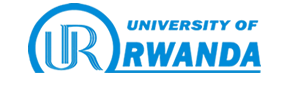Policies
Contents
- Philosophy of the Journal of African Conflict and Peace Studies
- Who Can Submit?
- General Submission Rules
- Formatting Requirements
- Copyright for the Journal of African Conflicts and Peace Studies
- Open Access Policy for Users
- Attribution and Usage Policies
- General Terms and Conditions of Use
- Submission Guidelines
Philosophy of the Journal of African Conflicts and Peace Studies (JACAPS)
To share research findings in genocide studies and prevention, and in peace and conflict studies from the heart of Africa to the world.
Who Can Submit?
Researchers from all over the world who are interested in genocide studies and its prevention, peace and conflict studies with focus on the African content can submit papers to be published in the Journal of African Conflicts and Peace Studies. Anyone may submit an original article to be considered for publication in Journal of African Conflicts and Peace Studies provided he or she owns the copyright to the work being submitted or is authorized by the copyright owner or owners to submit the article. Authors are the initial owners of the copyrights to their works (an exception in the non-academic world to this might exist if the authors have, as a condition of employment, agreed to transfer copyright to their employer).
General Submission Rules
Submitted articles cannot have been previously published, nor be forthcoming in an archival journal or book (electronic or print). Please note: "publication" in a working-paper series does not constitute prior publication. In addition, by submitting material to the Journal of African Conflicts and Peace Studies (JACAPS), the author is stipulating that the material is not currently under review at another journal (electronic or print) and that he or she will not submit the material to another journal (electronic or print) until the completion of the editorial decision process at the Journal of African Conflicts and Peace Studies (JACAPS).
Journal of African Conflicts and Peace Studies does not charge article processing or submission fees. After publication, authors have the right to post pre-print or post-print versions of their article online, including on their personal, departmental, or institutional repository pages.
If you have concerns about the submission terms for Journal of African Conflicts and Peace Studies, please contact the editors.
Formatting Requirements
See Submission Guidelines for details. Although bepress can provide limited technical support, it is ultimately the responsibility of the author to work with the Editors of the Journal of African Conflicts and Peace Studies (JACAPS) to produce an electronic version of the final article as a high-quality PDF (Adobe's Portable Document Format) file.
It is understood that the current state of technology of Adobe's Portable Document Format (PDF) is such that there are no, and can be no, guarantees that documents in PDF will work perfectly with all possible hardware and software configurations that readers may have.
Copyright for the Journal of African Conflicts and Peace Studies (JACAPS)
Authors must agree to the following when submitting a manuscript for consideration:
I hereby grant to the USF Tampa Library and the University of Rwanda (the journal publisher) the nonexclusive, royalty-free right to distribute, display, and archive this work in a digital and/or print format for non-commercial educational and research uses during the full term of copyright. I warrant that I have the copyright to make this grant to the USF Tampa Library and the journal publisher unencumbered and complete. Authors are responsible for obtaining permission to reproduce copyrighted material from other sources.
Following publication, the author’s rights will be protected under a Creative Commons License Attribution-NonCommercial 4.0 International (CC BY-NC 4.0).
Open Access Policy for Users
The Journal of African Conflicts and Peace Studies is an open access journal, which means that all content is freely available without charge to the user or his/her institution. Users are allowed to read, download, copy, distribute, print, search, or link to the full texts of the articles in this journal without asking prior permission from the publisher or the author for non-commercial purposes. Nonetheless, reproduction, posting, transmission or other distribution or use of the article or any material therein requires credit to the original publication source with a link to both the article and the license. This open access policy is in accordance with the Budapest Open Access Initiative's (BOAI) definition of open access.
Attribution and Usage Policies
Reproduction, posting, transmission or other distribution or use of the article or any material therein, in any medium as permitted or by written agreement requires appropriate credit to the original publication source with a link to both the article and the Creative Commons License.
General Terms and Conditions of Use
Users of the Scholar Commons website and/or software agree not to misuse the Scholar Commons service or software in any way.
The failure of Scholar Commons to exercise or enforce any right or provision in the policies or the Submission Agreement does not constitute a waiver of such right or provision. If any term of the Submission Agreement or these policies is found to be invalid, the parties nevertheless agree that the court should endeavor to give effect to the parties' intentions as reflected in the provision, and the other provisions of the Submission Agreement and these policies remain in full force and effect. These policies and the Submission Agreement constitute the entire agreement between the USF Libraries, the University of Rwanda (the journal publisher), and the Author(s) regarding submission of the Article.
Submission Guidelines
The Journal of African Conflicts and Peace Studies publishes articles, book reviews, editorials, and commentary works that seek to develop and disseminate scientific knowledge in the areas of genocide studies and its prevention, socio-political development, peace, security, and governance studies. Each article should include implications for policy and practice. This section describes the formatting requirements for manuscripts submitted to the Journal of African Conflicts and Peace Studies.
Contents
Online Submission
Manuscripts should be submitted online via the JACAPS online manuscript submission and review system.
To register a brand new account, click the "Submit" in the sidebar. Then click on "Create Free Account" and enter your first and last name, email address, and preferred password. You should receive immediately a confirmation email at the address you provided (you may need to check your Junk mail); click in the link in the email and proceed with your submission if ready. If you attempt to create an account at an address already in the system, you will be sent your password as a reminder. If you require assistance, please contact the editors.
Manuscript Style
Authors are responsible for ensuring that their manuscripts conform to the journal style.
- Abstract. Manuscripts should include an abstract of no more than 200 words. There is a text area for you to copy-and-paste your abstract directly through the online submission process.
- Author Biography. Manuscripts should include a brief author biography.
- Keywords. Manuscripts should include four to six keywords that characterize the topic. Keywords should be entered where indicated through the online submission process.
- Citations. The Journal of African Conflicts and Peace Studies uses a footnote-based referencing style based on The Chicago Manual Style Guide. Proper footnote formatting is imperative.
- Length. Articles published by the Journal of African Conflicts and Peace Studies are typically about 5,000 words in length. Occasionally, the Journal will consider publication of shorter or longer articles on a case-by-case basis. Authors should note the reason for substantially longer or shorter (1,000 words or more) articles at the time of submission and may do so by contacting the editors.
- Original Work. All submissions must be original and not draw substantially from previously published work.
Formatting Requirements
- Manuscripts should be prepared and submitted in Microsoft Word (.doc or .docx ) format. They should not be submitted in PDF format.
- Manuscripts should be single spaced and left-justified, so that the right margin is ragged.
- A single line space should be inserted between each new paragraph. New paragraphs should be left-justified, not indented or tabbed.
- Font:
Main Body—12 pt. Times New Roman
Headers—12 pt. Times New Roman
Footnotes—10 pt. Times New Roman - Margins: Manuscripts should have a one-inch (1”) margin on all four sides of the page.
- All headings should be in bold. All sub-headings should be in italics.
- All abbreviations/acronyms should be defined at their first use.
- Foreign words and phrases should be italicized in each instance.
- Long quotations (more than three lines) should be set off from the surrounding text by additional space above and below.
- Page numbers, headers, or footers should not be included in the manuscript and will be added by the editors.
- Manuscripts should be carefully proofread to ensure that they contain no typographical, spelling or grammatical errors.
- Images, figures, and Tables: To the extent possible, images and figures should appear in the document where they are referenced in the text.
- All images must be included with your submission and saved as high-resolution .jpg or .gif files. High resolution means at least 300 dots per inch (DPI) and at least 800x800 pixels in size. Images created in Word are not of sufficient quality and will not be accepted.
- Images and figures should be submitted along with the manuscript where indicated in the online submission process.
- To the extent possible, tables should appear in the document where they are referenced in the text. Placeholders for figures and images should be noted by the author (i.e.“Figure 1 about here.”) Large tables should be put on pages by themselves. Tables should use 12 pt. font, avoiding use of special characters, symbols, and colors where possible. In no case should tables be in a separate document or file.
Substantive and Structural Guidelines
The Journal of African Conflicts and Peace Studies looks for analytical, well-reasoned, and carefully researched arguments that expand and improve discourse on important issues in genocide studies. Arguments should be clearly constructed and well-documented. The Journal does not accept undocumented opinion pieces or descriptive papers that fail to provide new insights on an issue. Articles should encourage readers to think about a subject in a new light, provide an assessment of new developments, or add substantive knowledge to the existing literature.
The Journal of African Conflicts and Peace Studies looks for articles that include the following elements:
- Introduction — should state the author’s purpose and present a clearly defined thesis statement. The author should present a concise “roadmap” that helps the reader anticipate the structure of the article.
- Body — each section of the article should be relevant to the author’s thesis. Every word should count. Every paragraph should begin with a central idea followed by properly cited supporting evidence. Authors should also remember to include and address counterarguments.
- Conclusion — the conclusion should summarize the main points of the argument as they relate to the central thesis. The author should suggest courses of action or policy recommendations. The Journal of African Conflicts and Peace Studies looks for papers that are not just descriptive, but analytic and/or prescriptive—revealing important insights and developing creative strategies for the future


